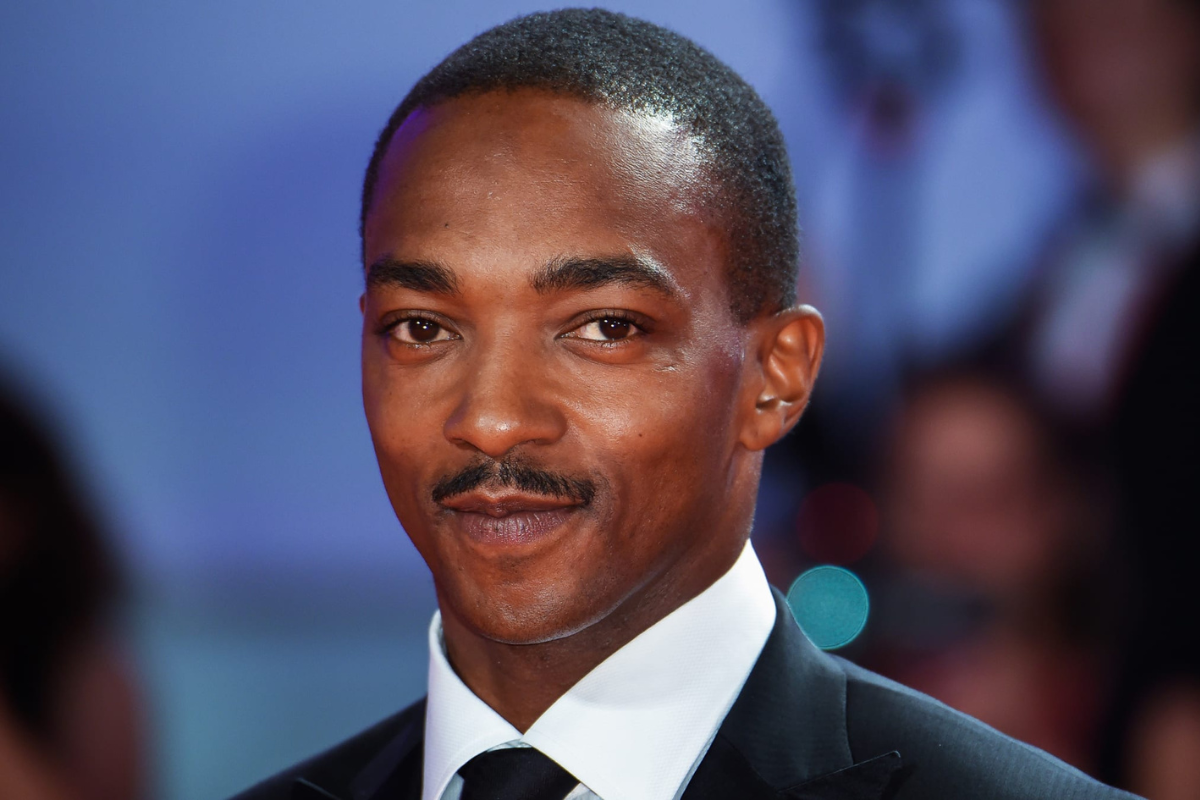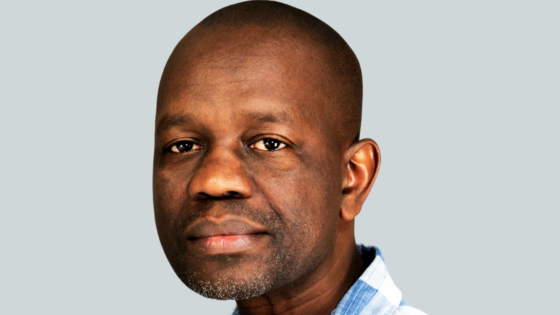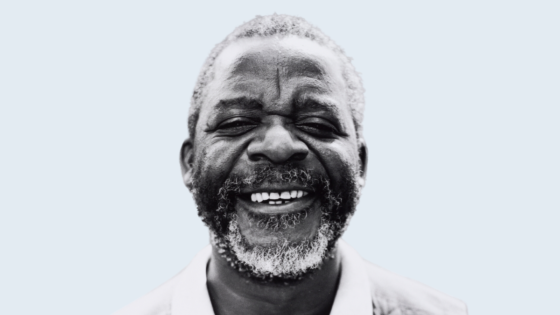Charlie Brooker’s Black Mirror is a work of art worthy of academic study. This multi-layered, Twilight Zone-esque anthology television series taps into our collective unease, technological anxieties and paranoia, presenting the viewer with a variety of potential futures. As episode 1 of Season 5, “Striking Vipers’ is the latest offering – and it does not disappoint. A range of pertinent, intersecting subjects are introduced, including the bonds of friendship, virtual sex, marital commitment, the increasingly febrile identity, ageing, fluid sexuality and the future of gaming and virtual reality technology. As the global community increasingly embraces 5G platforms and our obsession with sleek gadgets reaches fever pitch, now is the time for Black Mirror to be studied and accorded its rightful place in academia.
For those keen to indulge in literary analysis, Black Mirror is the perfect television show to turn to. “Striking Vipers” certainly ranks as one of the top Black Mirror episodes, joining such greats as “San Junipero” and the dating app episode “Hang the DJ”.
The hallmark of Brooker’s dystopian sci-fi tales is the ingenuity with which they tell personal narratives that most of us can engage with and relate to. With trademark Brooker wit and cynicism, the episodes interrogate and engage with our seemingly mundane interactions with technology, teasing out what-if scenarios: What if our obsessions go unchecked? asked the “Arkangel” episode (Season 4, episode 1). Arkangel was the name of a microchip implant that enabled a parent to track and monitor their children. This helicopter parenting had disastrous consequences. It is for raising such pivotal contemporary issues, its on-point commentary on current culture and its exploration of the technology-induced fears that we are projecting onto the future that Brooker’s work deserves recognition in academic circles. After all, how is it different from a work of literature? In my opinion, Brooker’s series has acted as a communal conscience, exploring how our obsession with sleek devices may ultimately be our bane.

Charlie Brooker at the RTS awards. Photo: Creative Commons Attribution 2.0 Sharealike Generic/ Feline_Dacat – https://www.flickr.com/photos/feline_dacat/5531231615/in/photostream/
The very title is loaded with subliminal meaning. It references the colour of our smart phones, personal computers, laptops and tablets, looking back at us as we confront our dark thoughts. However, the show is much more than just a cynical scapegoating of technology, as romance-themed episodes like “San Junipero” and “Hang the DJ” have shown. “Smithereens”, the episode that follows “Striking Vipers”, does, however, call out the collective recklessness of our social media culture, particularly our mobile phone obsession as we relentlessly stare at the screen when prompted by Twitter or other notifications. In “Smithereens”, this obsession has a disastrous and tragic outcome when Chris (Andrew Scott), the main character, is involved in a car crash that claims the life of his girlfriend. But Brooker also takes a swipe at the operations of the global media conglomerates in this episode, particularly data harvesting and the manipulation of our personal data in collusion with law enforcement agencies.
In “Striking Vipers”, Danny (AnthonyMackie of Avengers fame) shares an apartment with his girlfriend, Theo (Nicole Beharie), and his philandering pal, Karl (Yahya Abdul-Mateen II). The two friends are polar opposites: Danny is broody and somewhat introverted, living in his own world to which he blissfully retreats, whereas Karl is gregarious and bombastic. Their friendship is boosted by their affinity for the video game Striking Vipers, a Street Fighter-like battle game which they play together incessantly. The game becomes the centre piece of the narrative.
ADVERTISEMENT
An 11-year time jump introduces the audience to a 38-year-old Danny on his birthday. Although Danny and Theo have an adorable five-year-old son, they are battling conception problems. A “blast from the past” encounter with Karl re-ignites the two friends’ video game passion in the form of a revitalised, virtual reality Striking Vipers X upgrade game, which Karl gives Danny as a birthday present. This virtual reality game ushers in untold upheaval and disharmony in Danny and Karl’s lives as they engage in an immersive, virtual world of adult sex games through their respective avatars: Karl as the scantily clad Roxette (Pom Klementieff, who played Mantis in the Guardians of the Galaxy films) and Danny as the muscular Lance (Ludi Lin). Brooker’s intelligence goes into overdrive here, as the duo’s addiction to this virtual reality game introduces such contemporary themes as virtual infidelity and repressed (homo)sexuality.
LGBTQI+ flag Photo: Shutterstock
The virtual world begins to have a detrimental effect on Danny’s marriage, compounded by the fertility issues they are dealing with. Karl’s remark – “So, guess that’s us – gay now”and their continued annual trysts at the end of the show are evidence of the two male protagonists’ struggle to come to terms with their fluid sexuality. Theo and Danny embrace the “open relationship” notion by openly cheating on each other once annually, by mutual agreement. The open relationship phenomenon is another facet of modern-day life that television consumers can relate to.
“Striking Vipers” poses serious questions – the fluidity of sexuality, complex friendships and identities, and the place and scope of marital commitment, among others. Offline, when Karl and Danny try to re-enact their virtual reality romance with a real-life kiss, it ends with both being embroiled in fist fights. Is this a denial of their repressed sexuality? Paradoxically, outside of their online liaisons, the two men continue to have relationships with women, Danny with his wife and Karl with his girlfriend Mariela. But these heterosexual relationships suffer. In a poignant wedding anniversary exchange in a restaurant, Theo tearfully chides Danny for being unloving towards her, saying she feels rejected when “you withdraw into your own world” at will. Karl, on the other hand, fails to sexually fulfil his girlfriend. “Striking Vipers” appears to be interrogating the complexities of new sexual possibilities in an increasingly digitised global landscape. Interestingly, “StrikingVipers” could be read as a metaphor for Danny and Karl’s desires. There is little doubt, though, the show offers a nuanced portrayal of marriage.
Watch the trailer for Black Mirror: Striking Vipers
ADVERTISEMENT
What makes “Striking Vipers” poignant is that it could be happening in our contemporary society. Why a simple virtual reality fight game should double as a sex sim is an important question that the show proffers. Equally, the question of why fantasy underlies so many virtual worlds presents itself. Avid gamers know what it is like to live vicariously through our onscreen avatars, so we can identify and feel for both Danny and Karl as they live out their fantasies in an imaginary world. Of course, there are risks to living in a parallel universe or fantasy world, as the episode ultimately shows.
“Striking Vipers” taps into how many people are living or playing out their lives in the virtual world and how this “other life” may interfere with or impact on their real or offline world. Sociological research by Boellstorf (2008) and Carter’s cyber city notion (2005), for instance, has long shown how people like to hide behind the façade of virtual worlds or in a “second life”, as Boellstorf terms it. This escapism allows them to fulfil their fantasies in a way, but not without consequences – as the end of “Striking Vipers” illustrates. Following his off-screen confession, Danny and Theo’s marriage will never be the same again. As Carter (2005) observed from her research, ‘People are investing more time in online relationships and are likely to continue these relationships in their offline lives and meet in person.’
The American cable and satellite network Showtime’s show Dark Net has dealt with similar issues before. For instance, a Japanese man, the main character, dates and falls in love with an avatar character Rinko and introduces “her” to his mum. He uses LovePlus sim to achieve this. LovePlus isa dating sim originally developed for the Nintendo DS handheld video game console. In recent years, the rise in artificial intelligence has seen the sex industry resorting to robots to aid a burgeoning market. Increasingly, the world abounds with trends such as catfishing and sexting, among other forms of online role playing, in which people seem to enjoy the façade of an assumed online persona.
So, when Brooker highlights these very issues that are present in our contemporary reality, then the world of Black Mirror should not be dismissed as an exercise in hyperbole. If anything, we are living in this world; it is not far-fetched.
BlackMirror Title Card. Photo: Wiki CC
Take the example of another Black Mirror cracker of an episode, “Nosedive” (Season 3 episode 1). It fully validates our existential reality. “Nosedive” takes pot-shots at our obsession with the online ratings system, amplifying it as an oppressive, society-wide status game. I for one can see my own experience of this on the multitude of online shopping portals, such as Amazon retail, or airline websites, when I studiously check out previous customer reviews as a basis for making an informed purchasing decision. I am not alone in this.
In Black Mirror, Brooker, with his technological determinism thrust, tends to replicate our collective fear of technological difficulties in the future. In essence, Brooker is saying, our sleek technological devices, be they smart phones, TV flat screens, laptops, tablets, or video games, do define and shape our present-day reality. In addition, “Striking Vipers” also deals with vital issues that underpin our humanity, such as sexuality, honesty, trust and communication in relationships. While opinion may be divided, Brooker does manage to make his point well, highlighting techno-paranoia, the technological possibilities of the future and the negative effects these may have on humanity. I, for one, believe that his artistic output will stand up to and is worthy of scholarly scrutiny.
Author’s Bio:
Andrew Chatora teaches English, Media and Sociology at The Bicester School in Oxfordshire, England, where he manages The Media Department. He writes here in his personal capacity.











